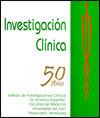Angiotensin II and human obesity. A narrative review of the pathogenesis.
IF 0.1
4区 医学
Q4 MEDICINE, RESEARCH & EXPERIMENTAL
引用次数: 0
Abstract
Angiotensin II (Ang II) is a hormone and the main effector of the renin-angiotensin system (RAS). This peptide has crucial pathophysiologi-cal effects on hypertension, cardiac hypertrophy, endothelial proliferation, in-flammation and tissue remodelling through G protein-coupled receptors. The pro-inflammatory role of Ang II has been reported in various inflammatory pro-cesses. Obesity is linked to a chronic inflammatory process which in turn is the cause of some of its morbidities. Ang II is related to the comorbidities related to the comorbidities of obesity, which include alterations in the heart, kid-ney, hypertension and coagulation. In this regard, activation of AT1 receptors by Ang II can induce an inflammatory process mediated by the transcription factor NF-kB, triggering inflammation in various systems that are related to the comorbidities observed in obesity. The aim of this review was to highlight the pro-inflammatory effects of Ang II and the alterations induced by this hor-mone in various organs and systems in obesity. The search was done since 1990 through Medline, EMBASE and PubMed, using the keywords: angiotensin II; an-giotensin II, obesity; angiotensin II, kidney, obesity; angiotensin II, coagulation, obesity; angiotensin II, inflammation, obesity; angiotensin II, adipose tissue, obesity; angiotensin II, hypertension, obesity; angiotensin II, insulin resistance, obesity; angiotensin II, adiponectin, leptin, obesity; angiotensin II, COVID-19, obesity. Angiotensin II through its interaction with its AT1 receptor, can induce alterations in diverse systems that are related to the comorbidities observed in obesity. Therapeutic strategies to decrease the production and action of Ang II could improve the clinical conditions in individuals with obesity.血管紧张素II与人类肥胖。发病机制的叙述性回顾。
血管紧张素II (angii)是一种激素,是肾素-血管紧张素系统(RAS)的主要效应物。该肽通过G蛋白偶联受体对高血压、心肌肥大、内皮细胞增殖、炎症和组织重构具有重要的病理生理作用。Ang II的促炎作用已被报道在各种炎症过程中。肥胖与慢性炎症过程有关,而慢性炎症过程又会导致某些疾病。Ang II与肥胖合并症相关的合并症有关,包括心脏、肾脏、高血压和凝血的改变。在这方面,Ang II激活AT1受体可以诱导由转录因子NF-kB介导的炎症过程,引发与肥胖合并症相关的各种系统的炎症。本综述的目的是强调Ang II的促炎作用,以及这种激素在肥胖患者各器官和系统中引起的改变。检索自1990年以来通过Medline, EMBASE和PubMed完成,使用关键词:血管紧张素II;血管紧张素II,肥胖;血管紧张素II,肾脏,肥胖;血管紧张素II,凝血,肥胖;血管紧张素II,炎症,肥胖;血管紧张素II,脂肪组织,肥胖;血管紧张素II,高血压,肥胖;血管紧张素II,胰岛素抵抗,肥胖;血管紧张素II,脂联素,瘦素,肥胖;血管紧张素II, COVID-19,肥胖。血管紧张素II通过其与AT1受体的相互作用,可以诱导与肥胖合并症相关的多种系统的改变。减少Ang II的产生和作用的治疗策略可以改善肥胖个体的临床状况。
本文章由计算机程序翻译,如有差异,请以英文原文为准。
求助全文
约1分钟内获得全文
求助全文
来源期刊

Investigacion clinica
MEDICINE, RESEARCH & EXPERIMENTAL-
CiteScore
0.20
自引率
50.00%
发文量
2
审稿时长
>12 weeks
期刊介绍:
Estudios humanos, animales y de laboratorio relacionados con la investigación clínica y asuntos conexos.
 求助内容:
求助内容: 应助结果提醒方式:
应助结果提醒方式:


